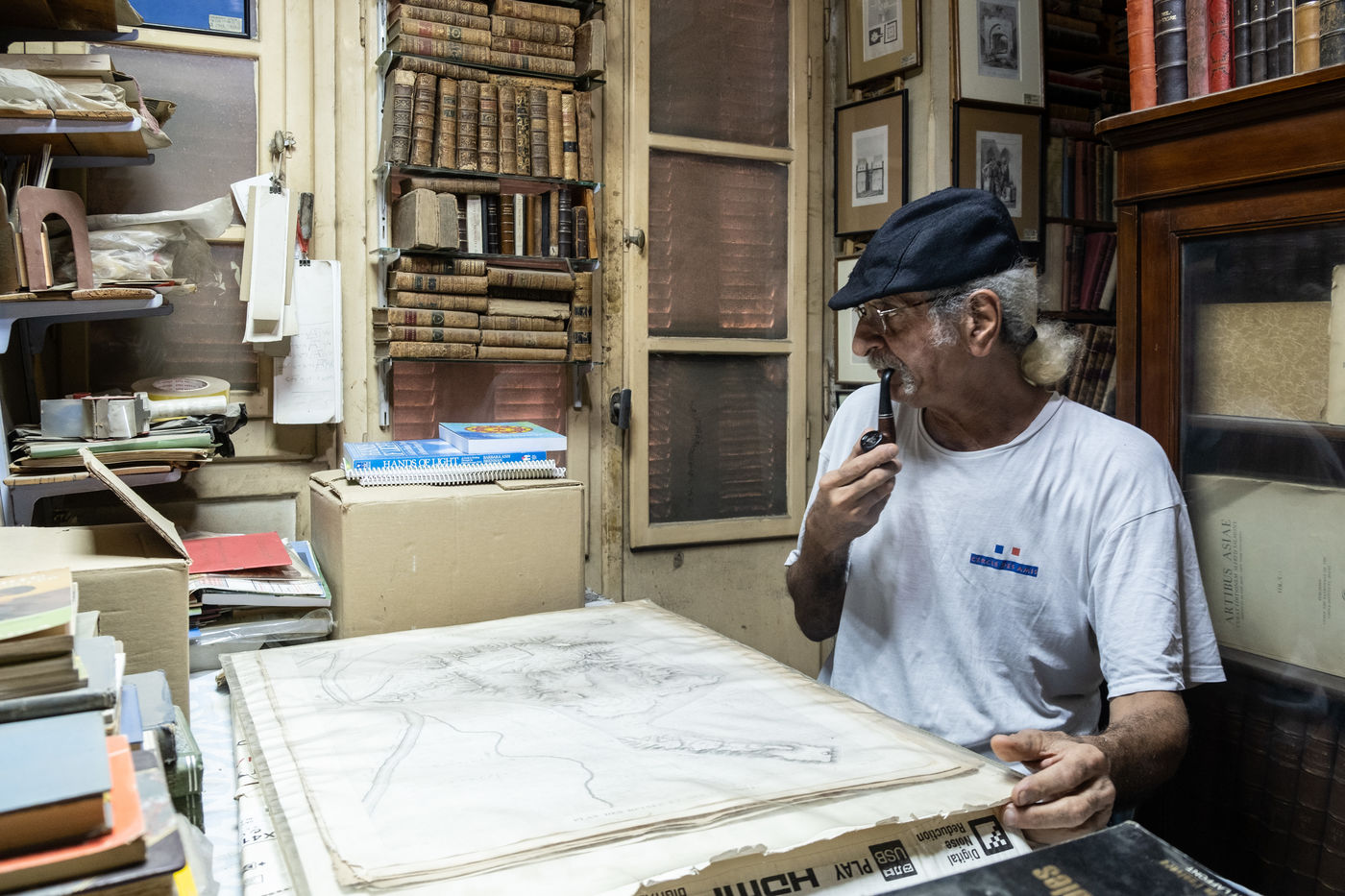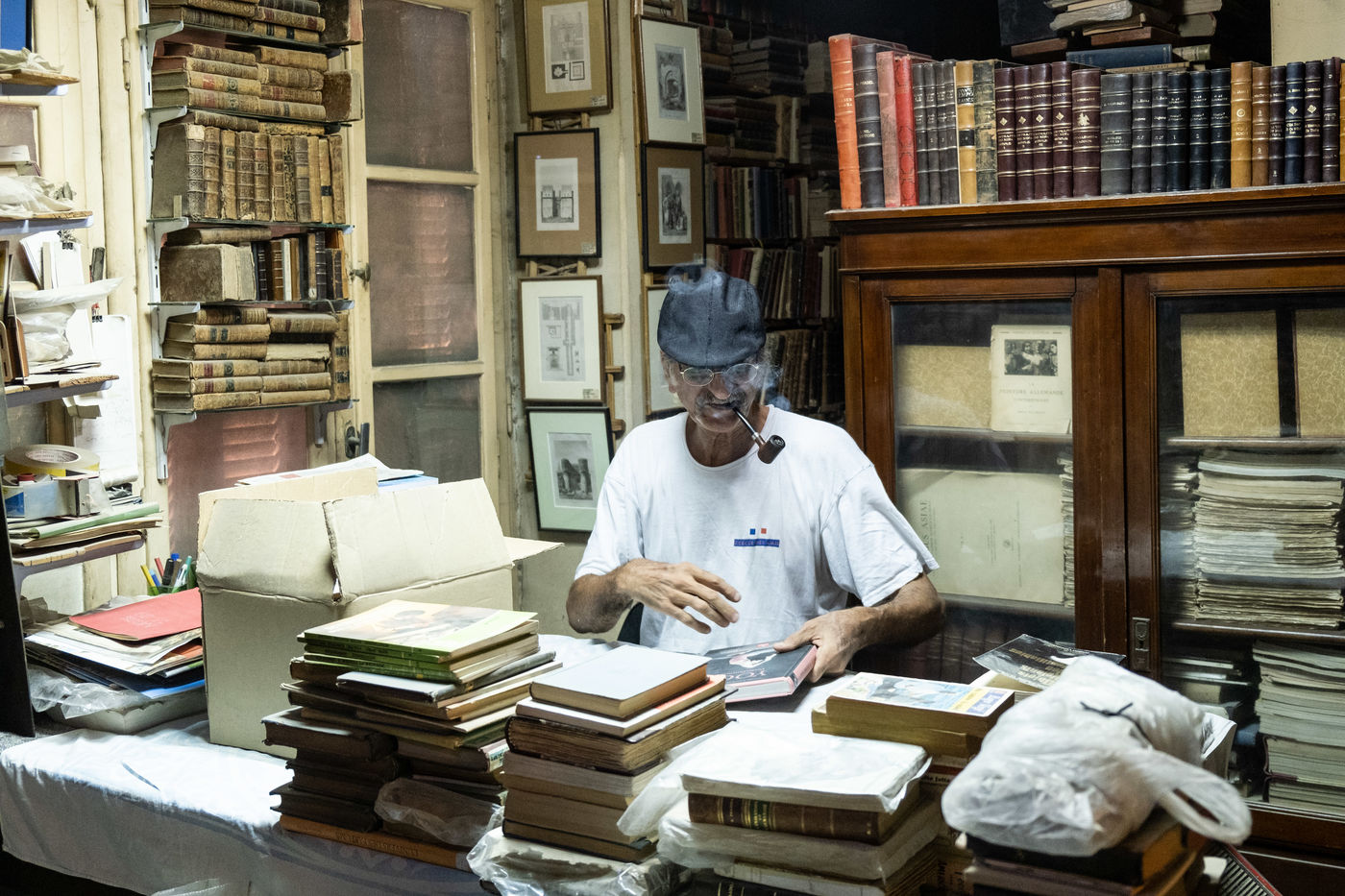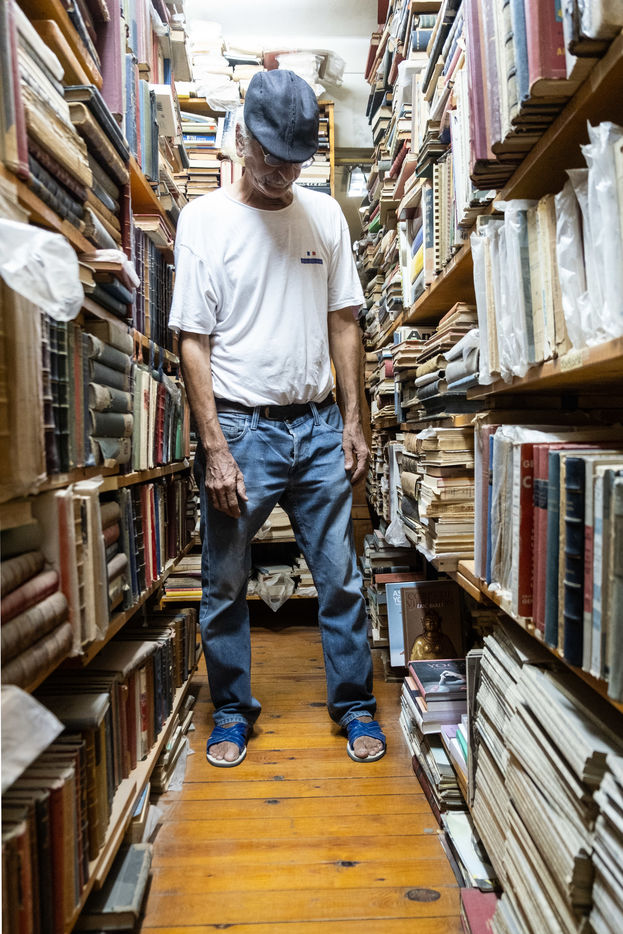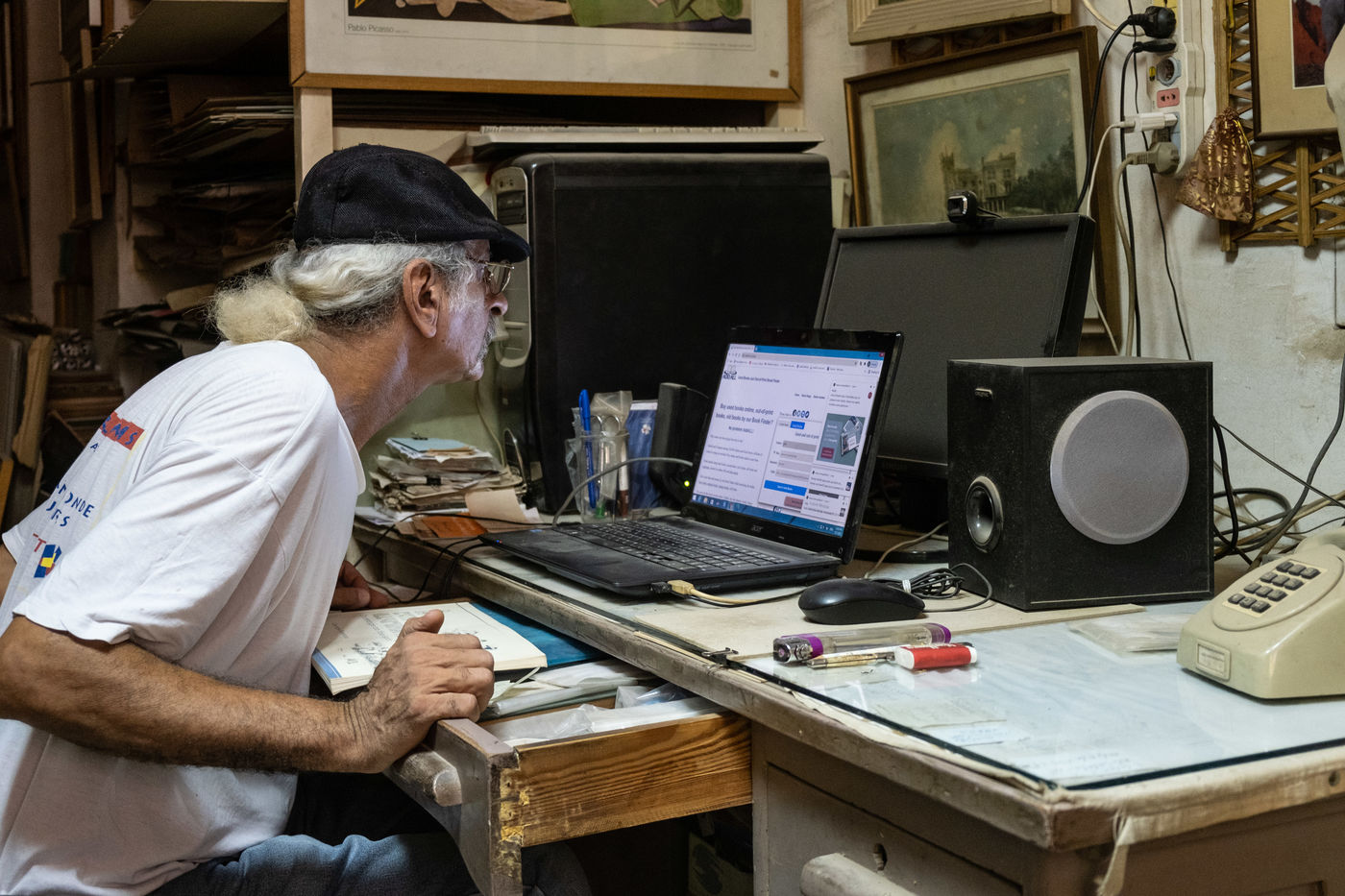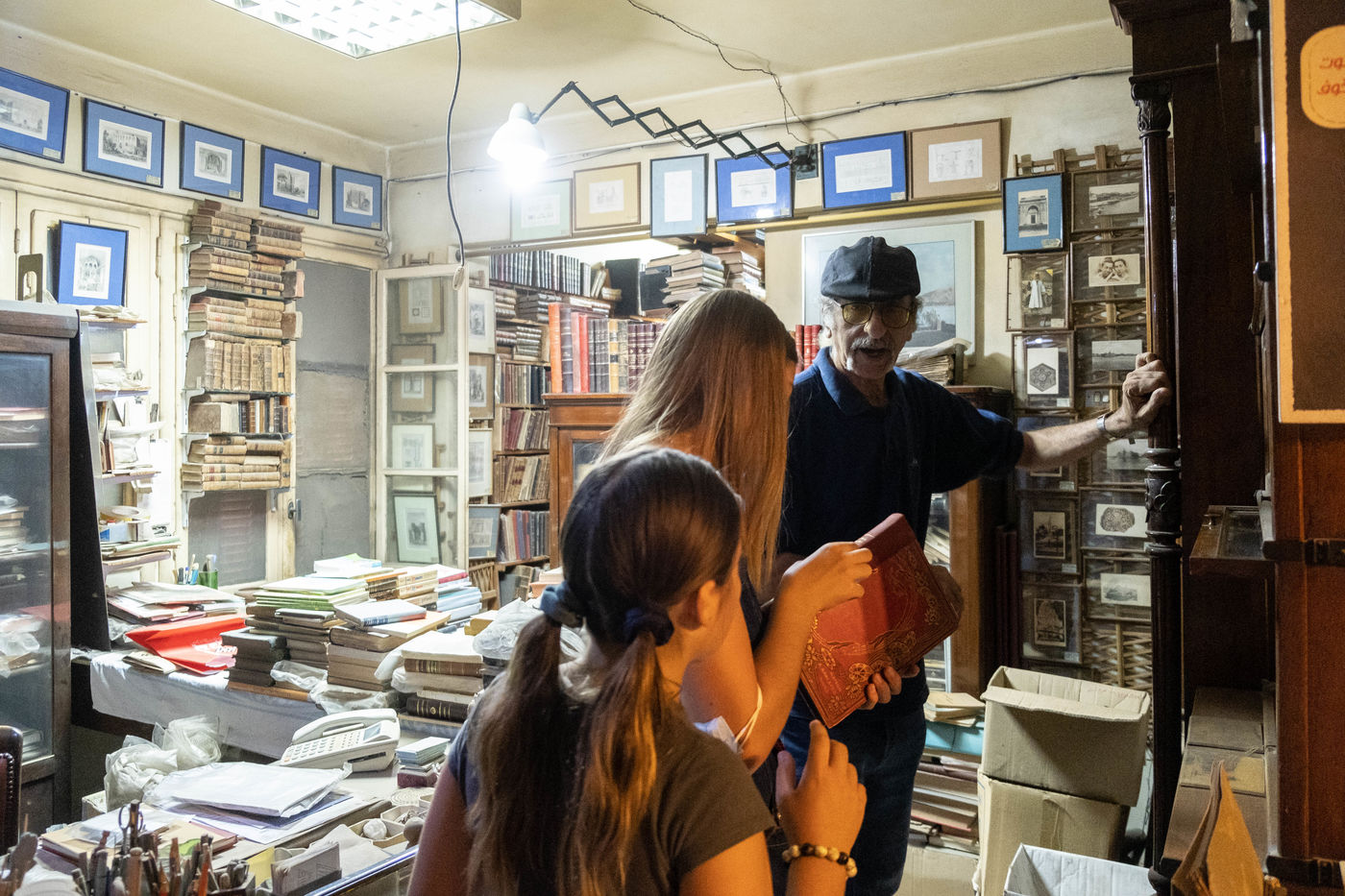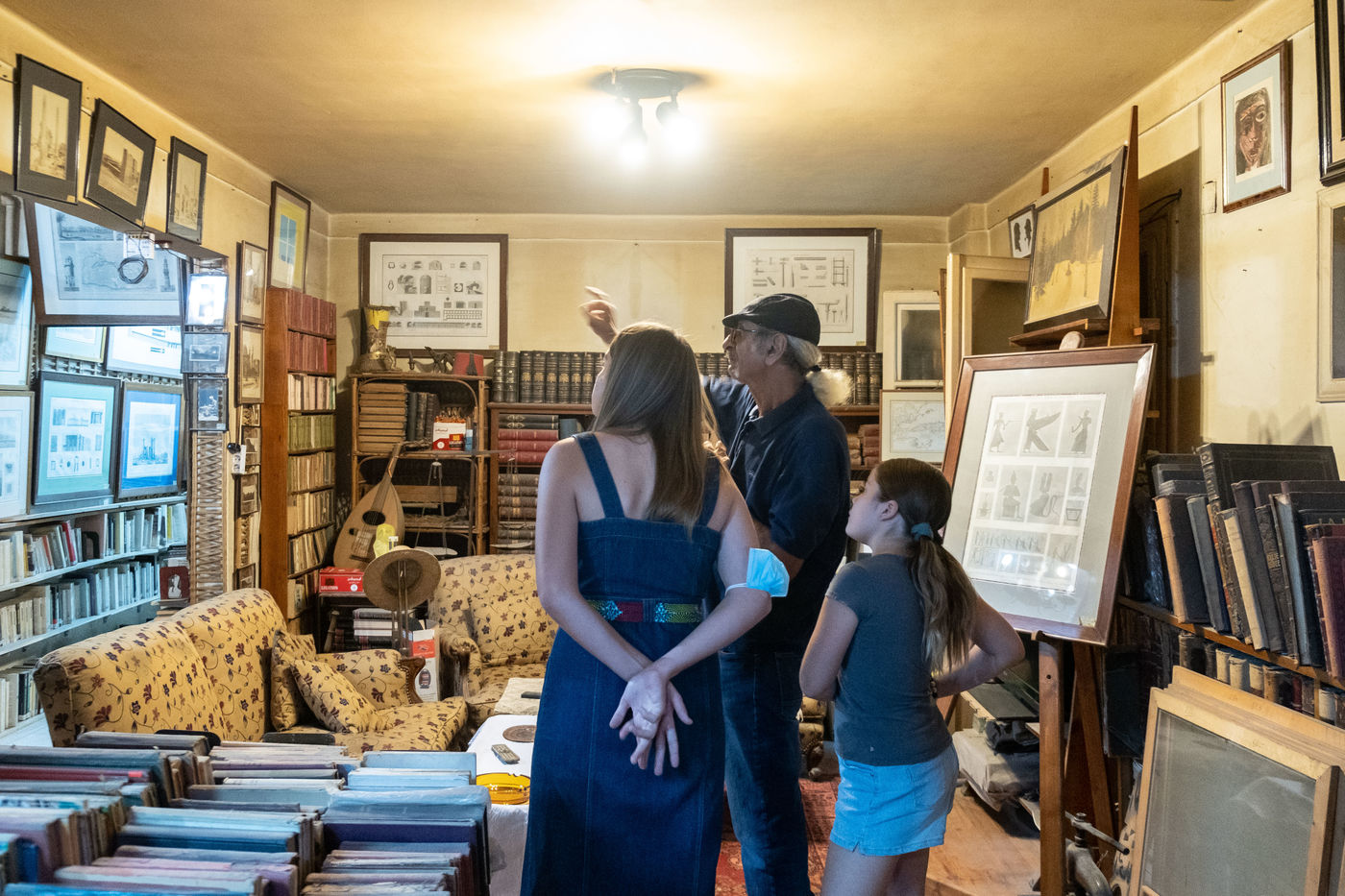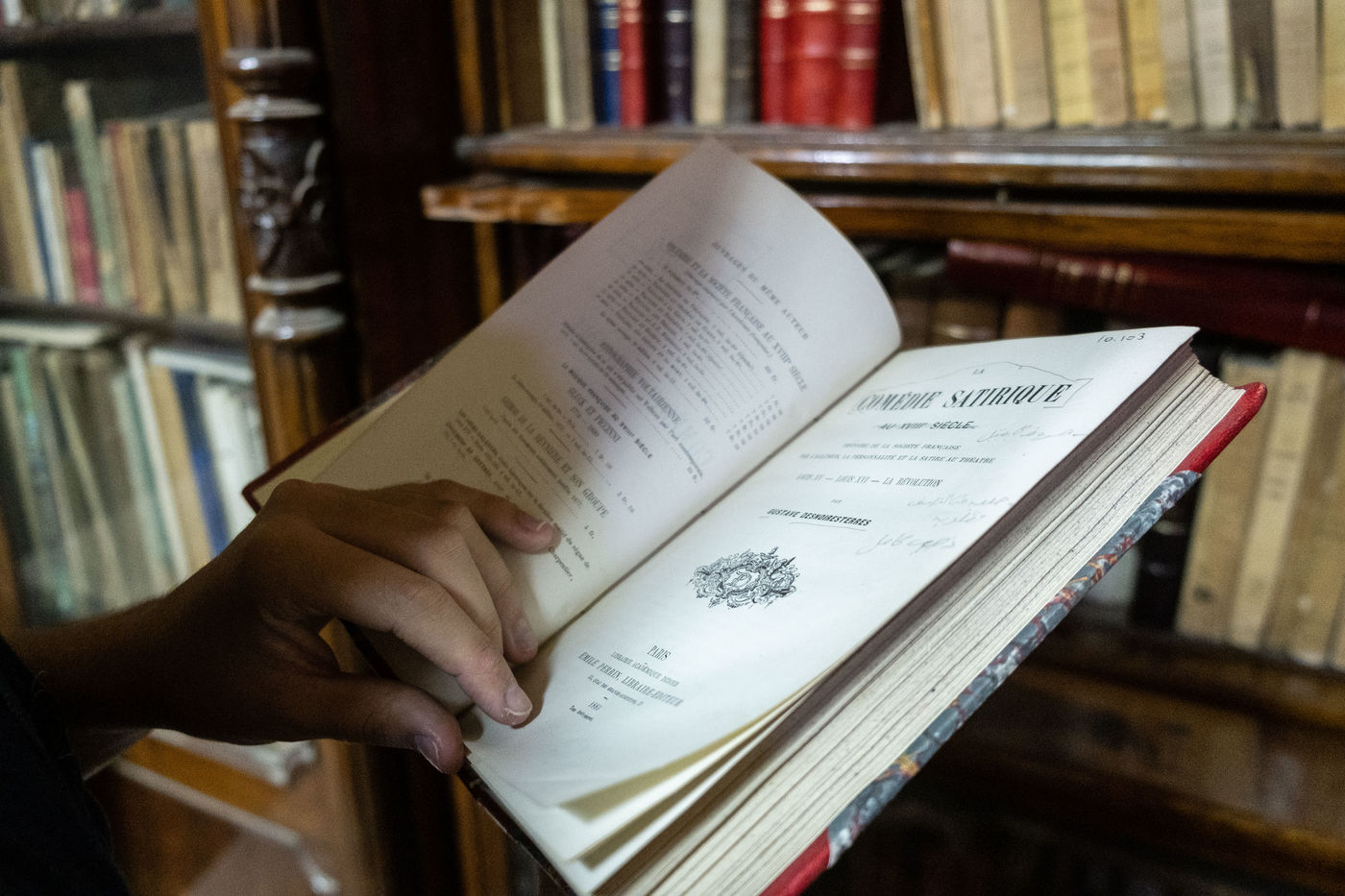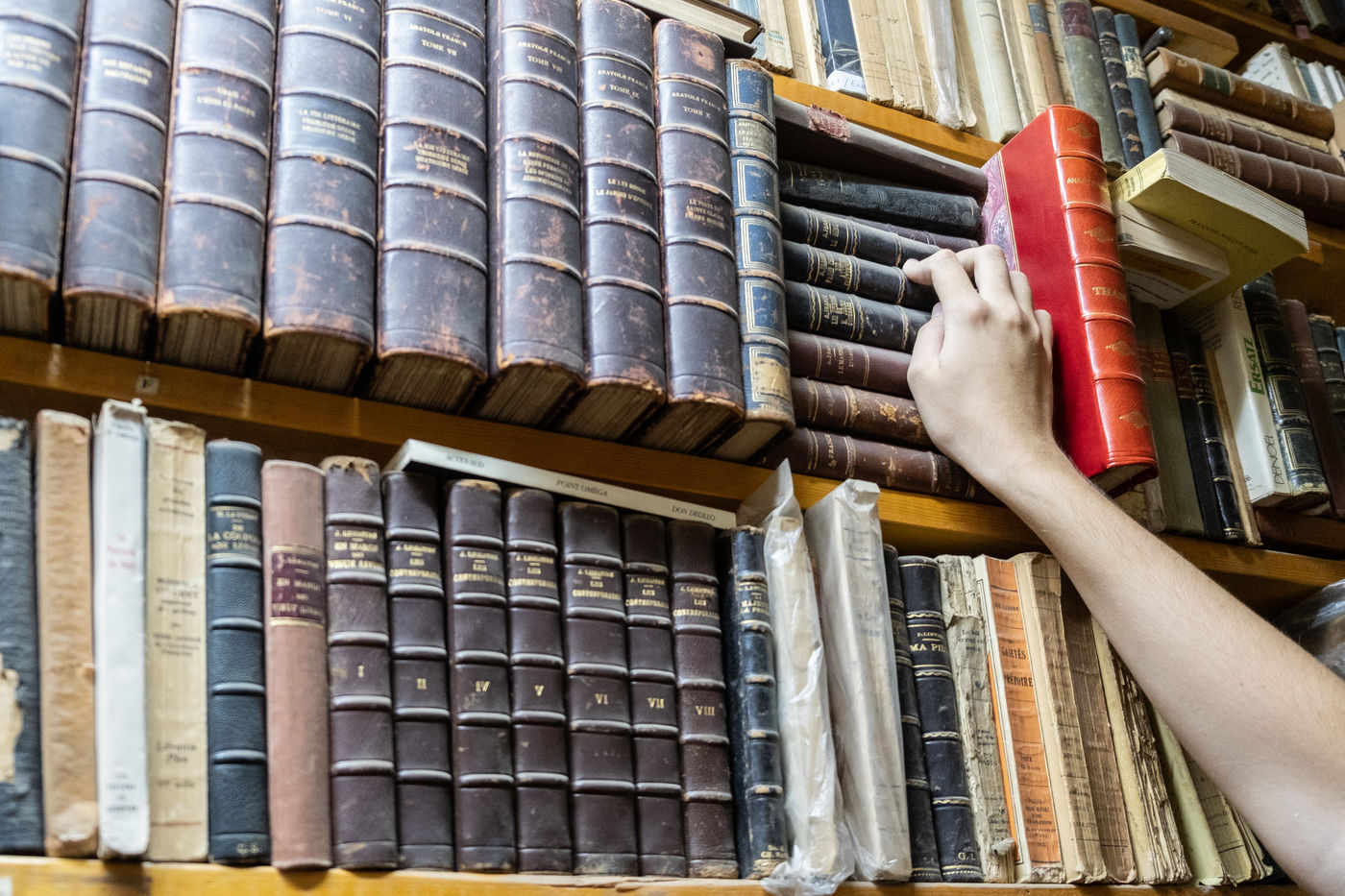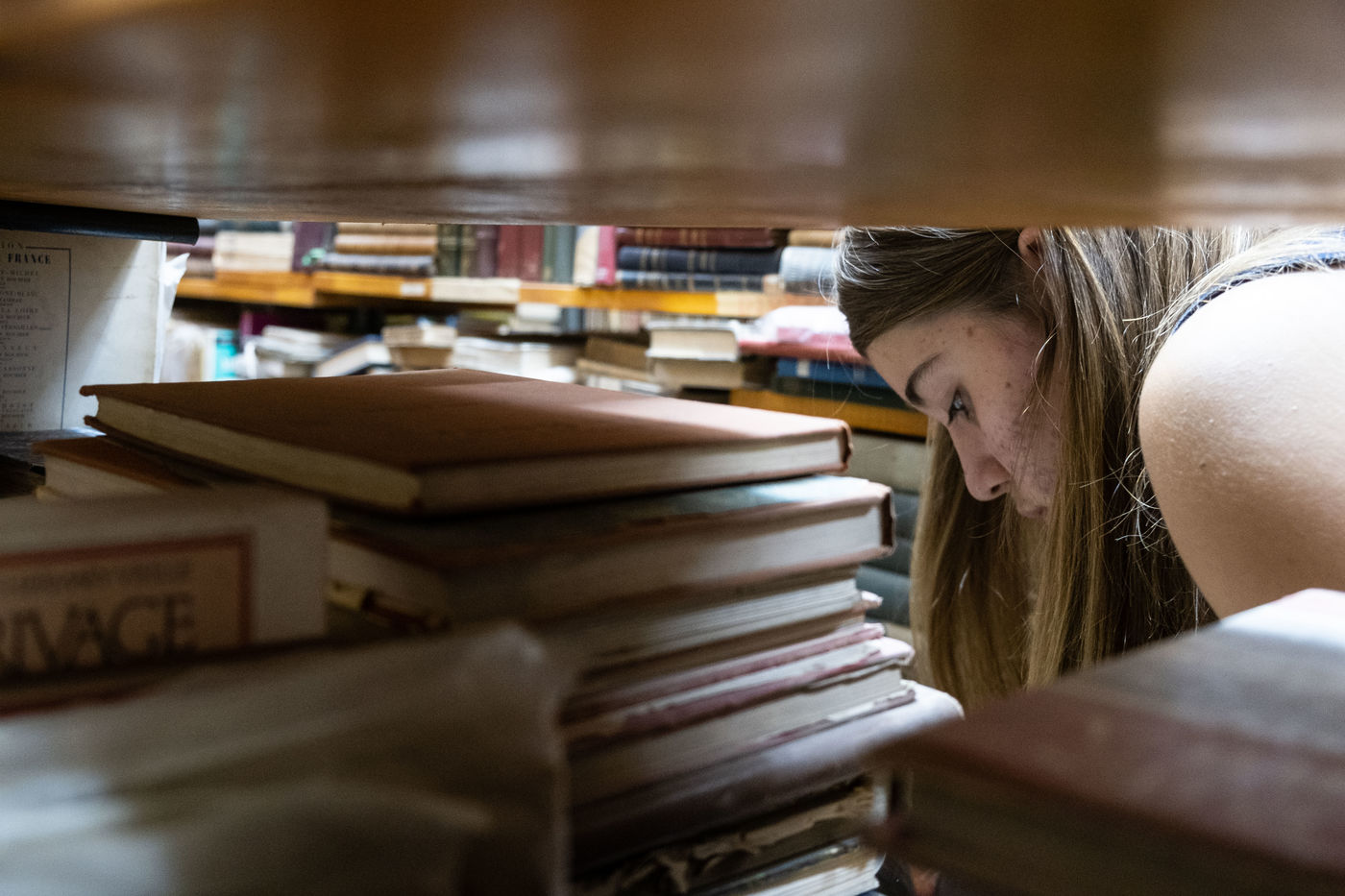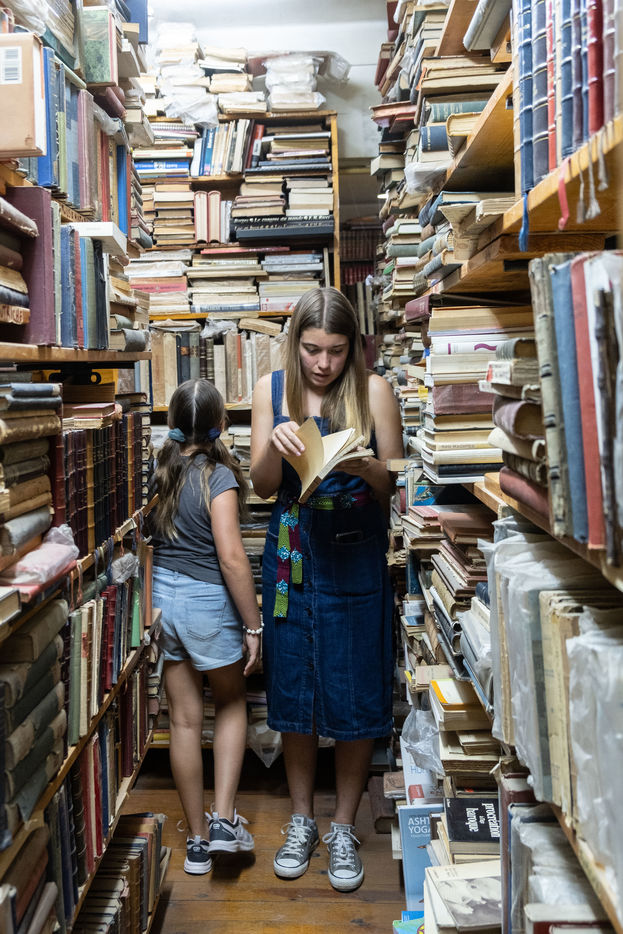Pour l amour des lettres et du francais
C est en 1952, a Ismailia (a mi-chemin entre le canal de Suez et le Caire ? 120 kms), dans l Egypte d apres seconde guerre mondiale, qu est ne Labib.
Gamal Abdel Nasser venait tout juste d instaurer la republique apres avoir renverse la monarchie.
« Petit j etais amoureux des livres. Moi je suis rentre dans la litterature et l ecriture par les bandes dessinees. Je gagnais 1 piastre/mois d argent de poche, et pour ce prix je pouvais seulement « louer » un magazine et consulter les pages en partie scellees ». Depuis l enfance, Labib revait d avoir sa propre bibliotheque mais les moyens familiaux et sociaux de la famille ne le permettaient pas".
Si c est a Port-Said qu il « chasse » ses premiers mots en francais dans sa petite jeunesse, sa vie bascule lors de son premier voyage en France en 1972. Il en garde des souvenirs memorables, mais surtout il va « tomber amoureux » de la langue francaise.
C est en parlant quotidiennement lors de sejours repetes en France, qu il finit par maitriser le francais. Gros avantage, sa connaissance de la langue et ses etudes universitaires d ingenieur lui permettront d integrer les rangs des societes francaises installees en Egypte.
Dans les annees 80, sa rencontre avec un cuisinier egyptien est decisive ce dernier lui propose de vendre une collection du XIXieme siecle de livres de cuisine ecrits en francais dont il a herite. « J ai senti que ce sont des livres tres importants ». Il les vend en effet tres rapidement et decide alors de se lancer dans l achat/revente de livres anciens, majoritairement francophones. « Les beaux livres tu les sens, des que tu les prends tu les reconnais »
« Quand ils ont su que je travaillais avec des livres, mes parents m ont dit que ce n etait pas une profession. Mon pere, surtout, il me disait que j etais fou. Mais ils ont change d avis quand ils se sont rendus compte que je gagnais bien ma vie, mieux qu eux. Je suis un des premiers de ma famille a avoir voyage dans le monde. Le voyage m a donne une certaine culture ».
Entre 60 et 70 000 livres
Ce n est qu une estimation, mais son appartement est une vaste bibliotheque.
Deja, il y a trente ans, il a demenage environ 20 tonnes de livres quand il a quitte la maison familiale pour s installer dans le quartier tranquille de Maadi, au Caire. Il n y avait encore que des champs autour. Le quartier a bien change depuis. Mais dans sa caverne un peu secrete, Labib est toujours la. Surtout depuis la pandemie. Loin des contraintes, « il voyage dans son appartement ».
Si la plupart des livres sont anciens, les sources se tarissent peu a peu.
Outre le marche aux livres anciens d Ataba (au Caire), Labib achetait aussi ses livres aux heritiers des anciennes familles bourgeoises francophones.
Depuis la nationalisation du Canal de Suez et l arabisation du pays, l Egypte a perdu progressivement l usage de la langue francaise. Outre l arabe, les nouvelles generations parlent mieux l anglais aujourd hui. De fait, il compte peu d egyptiens parmi ses clients et estime que la culture francaise disparait doucement?
Feru d histoire et de philosophie, le vieil homme francophile est un egyptien fier d avoir mene sa barque comme il l entendait, et d avoir vecu de sa passion.
Le collectionneur s est aussi diversifie et propose a la vente des cartes maritimes originales de plusieurs centaines d annees en langue francaise, des planches de gravures scientifiques francaises de l expedition napoleonienne de 1798, des cartes postales anciennes.
Depuis quelques annees, des livres plus contemporains ont pris la releve et continuent de remplir les etageres de sa bibliotheque. L appartement de Labib est devenu un lieu de rencontres litteraires, une visite incontournable au programme des associations d expatries.
Mais avec la covid-19, les rassemblements et les activites culturelles ont ete reduits. Il recoit moins de visites, au point qu il estime, en rigolant, « perdre peu a peu sa langue francaise ».
Quand on lui demande s il a deja pense a prendre sa retraite, il repond, d un air malicieux, qu il ne considere pas ce qu il fait comme un travail, et qu il continuera tant qu il peut le faire !
Avec sa pipe, qui l aide a se concentrer, Labib s installe a sa table pour vider des cartons.
« C est la petite organisation d un vieil homme » dit-il pour s excuser, dans un nuage de fumee blanche odorante. Souriant, derriere ses livres ?. A ses cotes se trouve une petite pile d evangiles imprimees avant la revolution francaise. Certains de ces livres n ont pas de prix il les garde pour lui, il n est pas presse de les vendre. Le livre demande du temps ».
For the love of letters and French
Labib was born in 1952 in Ismailia (halfway between the Suez Canal and Cairo - 120 km), in post-World War II Egypt.
Gamal Abdel Nasser had just established the republic after overthrowing the monarchy.
"I was in love with books as a child. I got into literature and writing through comics. I earned 1 piaster/month pocket money, and for that price I could only "rent" a magazine and consult the partly sealed pages. Since childhood, Labib dreamed of having his own library, but the family's family and social means did not allow it".
If it was in Port Said that he "hunted" for his first words in French in his early youth, his life changed during his first trip to France in 1972. He keeps memorable memories, but above all he will "fall in love" with the French language.
It is by speaking French on a daily basis during repeated stays in France that he finally mastered the French language. His knowledge of the language and his university studies in engineering were a great advantage, allowing him to join the ranks of French companies established in Egypt.
In the 1980s, his meeting with an Egyptian cook was decisive; the latter offered to sell a collection of 19th century cookbooks written in French that he had inherited. "I felt that these were very important books. He sold them very quickly and decided to start buying and reselling old books, mostly French. "You can feel the beautiful books, as soon as you pick them up you recognise them.
"When they knew I was working with books, my parents told me that it was not a profession. My father, especially, told me I was crazy. But they changed their minds when they realised that I was earning a good living, better than them. I was one of the first in my family to travel the world. Travelling has given me a certain culture.
Between £60,000 and £70,000
It's only an estimate, but his flat is a vast library.
Thirty years ago, he moved about 20 tonnes of books from his family home to the quiet Maadi district of Cairo. There were only fields around then. The neighbourhood has changed a lot since then. But in his somewhat secret cave, Labib is still there. Especially since the pandemic. Far from the constraints, "he travels in his flat".
Although most of the books are old, the sources are gradually drying up.
In addition to the antique book market in Ataba (Cairo), Labib also bought his books from the heirs of the old French-speaking bourgeois families.
Since the nationalisation of the Suez Canal and the Arabisation of the country, Egypt has gradually lost the use of the French language. In addition to Arabic, the new generations speak English better today. In fact, he counts few Egyptians among his clients and believes that French culture is slowly disappearing...
Fond of history and philosophy, the old Francophile is an Egyptian who is proud to have run his own business and to have lived from his passion.
The collector has also diversified and offers for sale original French-language maritime maps dating back several hundred years, plates of French scientific engravings from the Napoleonic expedition of 1798, and old postcards.
In recent years, more contemporary books have taken over and continue to fill the shelves of his library. Labib's flat has become a place for literary meetings, a must-see for expatriate associations.
But with covid-19, the gatherings and cultural activities have been reduced. He receives fewer visits, to the point where he jokingly considers that he is "losing his French language little by little".
When asked if he has ever thought of retiring, he replies, with a mischievous look, that he does not consider what he does as a job, and that he will continue as long as he can do it!
With his pipe to help him concentrate, Labib sits down at his table to empty boxes.
"It's an old man's little organisation," he says apologetically, in a cloud of fragrant white smoke. Smiling, behind his books .... At his side is a small stack of gospels printed before the French Revolution. Some of these books are priceless; he keeps them for himself, he is in no hurry to sell them. Books take time".
